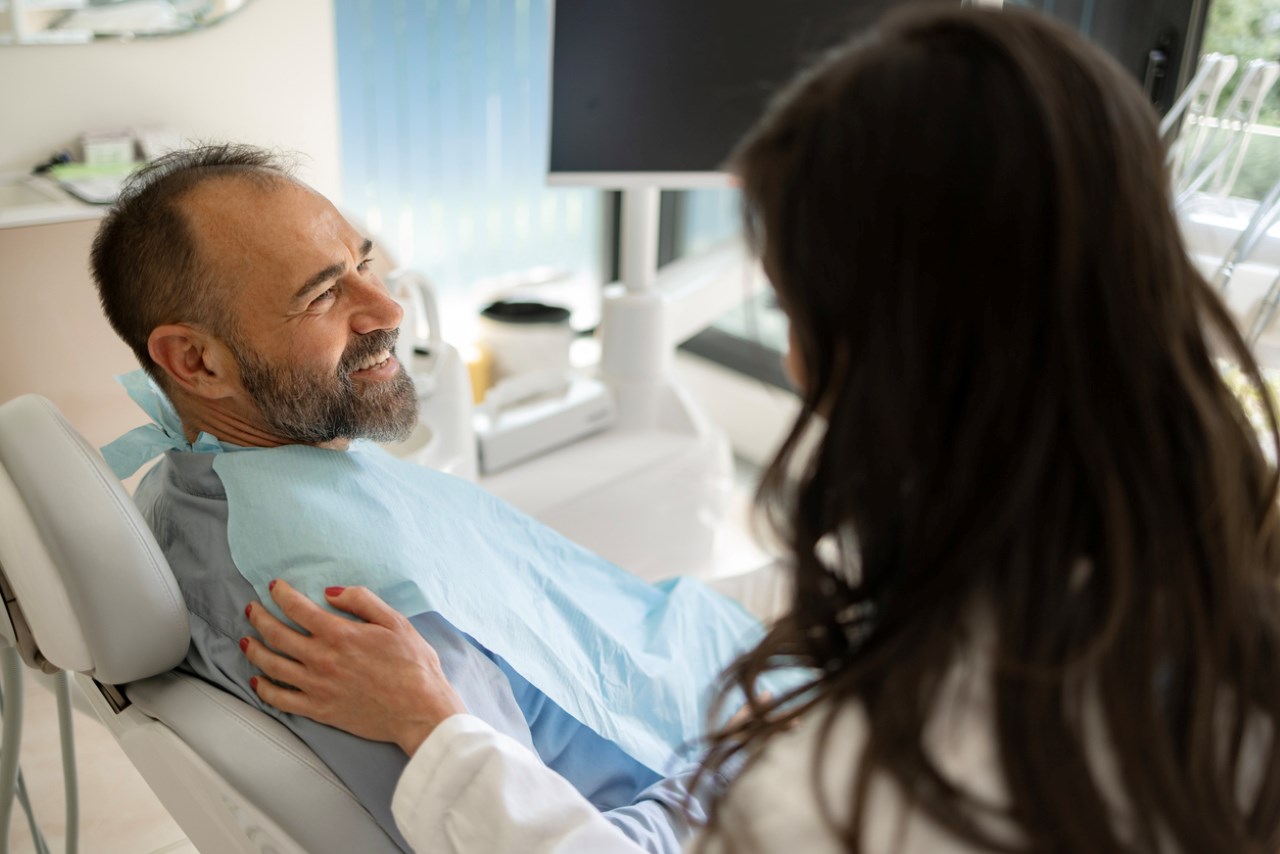Jan
22

When it comes to our oral health, making sure to attend your routine dental check-up is a must – and the good news is, it doesn’t take long at all to check it off your to-do list! However, some other types of consultations can take longer, depending on factors such as your location, and the nature of the appointment or procedure. So, how long is a dentist appointment UK? Let’s take a look at some variables.
Importance of Dental Appointments
Firstly – why are dental appointments so important? In short, dental appointments are fundamental to maintaining oral health, and regular visits to the dentist are vital when it comes to the early detection and treatment of dental issues. Additionally, these appointments offer an opportunity for professional teeth cleaning, which is key for preventing tooth decay and gum disease. To learn more about the importance of regular checkups, visit our detailed guide.
Types of Dental Appointments
Dental appointments in the UK vary in nature and duration, and tend to be tailored to the specific needs of the treatment or examination. Common types include routine check-ups for examining oral health, hygiene appointments focused on cleaning teeth, and treatment appointments for specific procedures like fillings or root canals – and all of these will take varying lengths of time.
What’s the Average Duration of a Dental Appointment in the UK?
The duration of dental appointments in the UK can vary; routine check-ups usually last between 15 to 30 minutes, and tend to involve a basic examination of teeth and gums. Hygiene appointments can take about 30 to 60 minutes, although again this will depend on the condition of the teeth and gums. At our Smile Cliniq location in London, treatment appointments, such as for fillings or more complex procedures like root canals, can vary significantly in length, and might sometimes require multiple visits. Understanding the cost of dental treatment in London can help you plan for these necessary appointments.
What to Expect During a Dental Appointment
If you’re heading for a regular checkup, a typical dental appointment will usually involve the dentist examining your mouth to check for signs of decay, gum disease, and other oral health issues. The dentist will most likely also discuss your oral health, addressing any concerns or symptoms you might have while also giving you time to ask questions about any potential treatments or issues you’re having. If the visit is for a specific treatment, the procedure will be carried out by your dentist and possibly the dental assistant, and depending on the procedure involved, will possibly also involve local anaesthesia for pain management. The appointment may also include taking X-rays or impressions, adding to the overall time. For those who are anxious about dental procedures, learning about dental sedation options can be very helpful.
Tips for Maximising Your Dental Appointments

Arrive Prepared
To ensure your appointment runs smoothly, you’ll want to make sure you arrive prepared; this means having a list of any symptoms, concerns, or questions you might have, and arriving with your teeth freshly brushed.
Follow Pre-Appointment Guidelines
You’ll also want to make sure to adhere to any pre-appointment instructions; these might include dietary restrictions, such as fasting before certain procedures, or specific oral hygiene practices. Following these guidelines ensures that your appointment proceeds smoothly and that your dentist can provide the best possible care in the time slot allocated to you.
Maintain Regular Appointments
Aside from specific procedures, make sure to attend regular dental visits – aka your routine checkups – to ensure optimal long-term oral health. Put simply, these visits enable your dentist to monitor any changes or developments in your oral health, as well as provide timely interventions before symptoms escalate further.
The Bottom Line
Ultimately, you can expect to spend anywhere from 15 minutes to 30 minutes at the dentist for a regular checkup, but longer for more complex and lengthy procedures, such as a tooth extraction or dental cleaning. And while it might be tempting to skip your routine check-up, don’t! Regular dental check-ups – alongside maintaining good oral hygiene and necessary treatments – play a vital role in maintaining not just your oral health but your overall health and wellbeing.
FAQs
How often should I schedule a dental check-up?
For most individuals, it’s recommended to schedule a dental check-up every six months. However, depending on your specific oral health needs, your dentist may advise more frequent visits.
Can I eat before a dental appointment?
Generally, you can eat before a dental appointment, especially if it’s a routine check-up or cleaning. However, if you’re scheduled for a procedure that requires anaesthesia, you may be asked to fast for a certain period beforehand.
Is it necessary to take X-rays at every dental appointment?
Not necessarily – the frequency of dental X-rays depends on your individual oral health needs and history, so your dentist will only usually recommend X-rays based on specific circumstances or any recent changes in your dental health.
What happens if I miss a scheduled dental appointment?
If you miss a dental appointment, it’s important to reschedule as soon as possible, either via your local NHS Dental Clinic or a private dental surgeon.










